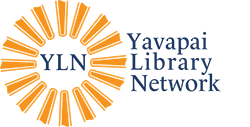The teenage brain : a neuroscientist's survival guide to raising adolescents and young adults
(Book - Regular Print)
Author
Contributors
Published
[Place of publication not identified] : HarperCollins, 2015., New York : Harper, 2014.
Physical Desc
320 pages ; 24 cm
Status
Cottonwood Public Library - NF - Nonfiction Books
612.6 JEN
1 available
612.6 JEN
1 available
Prescott High School - NF - Nonfiction Books
612.6 JEN
1 available
612.6 JEN
1 available
Prescott Public Library - JPT - Children's Area - Parent/Teacher Materials
612.64018 JEN
1 available
612.64018 JEN
1 available
More Details
Published
[Place of publication not identified] : HarperCollins, 2015., New York : Harper, 2014.
Format
Book - Regular Print
Language
English
Notes
Description
"An internationally respected neurologist offers a revolutionary look at the brains of adolescents, providing surprising insights--including why smart kids often do stupid things--and practical advice for adults and teens.In this groundbreaking, accessible book, Dr. Frances E. Jensen, a mother, teacher, researcher, and internationally known expert in neurology, introduces us to the mystery and magic of the teen brain. One of the first books to focus exclusively on the neurological development of adolescents, The Teenage Brain presents new findings, dispels widespread myths, and provides practical suggestions for negotiating this difficult and dynamic life stage for both adults and adolescents.Interweaving easy-to-follow scientific data with anecdotes drawn from her experiences as a parent, clinician, and public speaker, Dr. Jensen explores adolescent brain functioning and development, including learning and memory, and investigates the impact of influences such as drugs, multitasking, sleep, and stress. The Teenage Brain reveals how: Adolescents may not be as resilient to the effects of drugs as we previously thought. Occasional use of marijuana has been shown to cause lingering memory problems, and long-term use can affect later adulthood I.Q. Multi-tasking causes divided attention and can reduce learning ability. Emotionally stressful situations in adolescence can have permanent effects on mental health, and may lead to higher risk for certain neuropsychiatric disorders such as depression. Rigorous yet accessible, warm yet direct, The Teenage Brain sheds new light on young adults, and provides practical suggestions for how parents, schools, and even the legal system can better help them during this crucial period"--,Provided by publisher.
Description
"Renowned neurologist Dr. Frances E. Jensen offers a revolutionary look at the brains of teenagers, dispelling myths and offering practical advice for teens, parents, and teachers"--,Provided by publisher.
Description
Loading Description...
Also in this Series
Checking series information...
Copies
| Location | Call Number | Status |
|---|---|---|
| Cottonwood Public Library - NF - Nonfiction Books | 612.6 JEN | Find It Now |
| Prescott High School - NF - Nonfiction Books | 612.6 JEN | Find It Now |
| Prescott Public Library - JPT - Children's Area - Parent/Teacher Materials | 612.64018 JEN | Find It Now |
Reviews from GoodReads
Loading GoodReads Reviews.
Citations
APA Citation, 7th Edition (style guide)
Jensen, F. E., & Nutt, A. E. (2015). The teenage brain: a neuroscientist's survival guide to raising adolescents and young adults . HarperCollins.
Chicago / Turabian - Author Date Citation, 17th Edition (style guide)Jensen, Frances E and Amy Ellis. Nutt. 2015. The Teenage Brain: A Neuroscientist's Survival Guide to Raising Adolescents and Young Adults. HarperCollins.
Chicago / Turabian - Humanities (Notes and Bibliography) Citation, 17th Edition (style guide)Jensen, Frances E and Amy Ellis. Nutt. The Teenage Brain: A Neuroscientist's Survival Guide to Raising Adolescents and Young Adults HarperCollins, 2015.
MLA Citation, 9th Edition (style guide)Jensen, Frances E., and Amy Ellis Nutt. The Teenage Brain: A Neuroscientist's Survival Guide to Raising Adolescents and Young Adults HarperCollins, 2015.
Note! Citations contain only title, author, edition, publisher, and year published. Citations should be used as a guideline and should be double checked for accuracy. Citation formats are based on standards as of August 2021.
Staff View
Loading Staff View.

